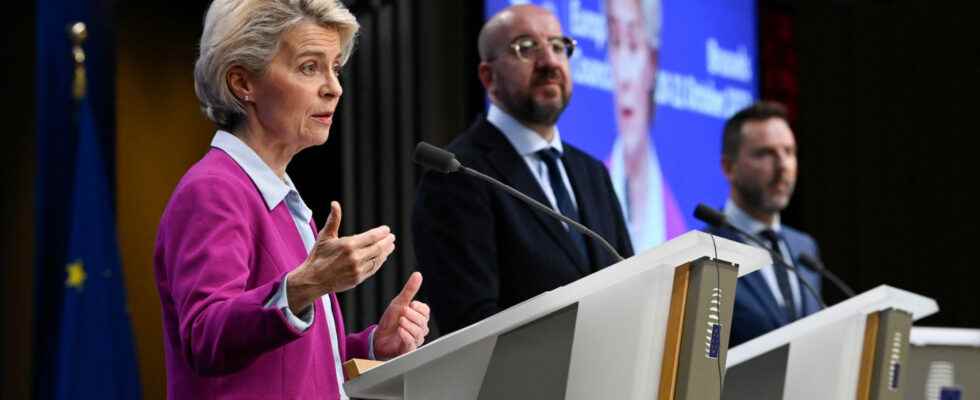Laura van Lerberghe (in Brussels), edited by Laura Laplaud
After lengthy discussions on Thursday, the 27 member countries of the European Union reached an agreement to contain the rise in energy prices. European Heads of State and Government are now working together on a roadmap to curb the fall in gas and electricity prices. But what are they planning?
Will we soon be paying our energy bills less? The 27 European Heads of State and Government are not yet in complete agreement, but are working together on a roadmap that would bring down gas and electricity prices on the Old Continent. It could be implemented by the end of October, or even the beginning of November. A satisfaction for Emmanuel Macron, who spoke after a night of debates.
“We have reached an agreement on a text on energy, which was the objective of this afternoon and this long evening. With a double objective, that of lowering the prices of gas and electricity and maintain European unity. The discussions have made it possible to achieve this objective. We have, in a united and therefore unanimous manner, given a mandate to both the European Commission and to our ministers, being very clear about our objectives, this falling prices,” he said.
What does this famous roadmap contain?
The 27 have agreed to buy a minimum of gas together, on a voluntary basis, only compulsory for 15% of the volumes stored by each country. Buying together avoids competition. This summer, each country made its gas reserves, but in dispersed order, which contributed in part to the surge in prices.
Another consensus is the establishment of a cap on gas prices. The European Union would set a lower cost than that sold on the European market, but it could change at any time and would only be temporary. The fear of the Nordic countries – including Germany – that gas suppliers will turn away from Europe because of such a measure is indeed pushing the 27 to lower prices, but not too much. Without forgetting the guarantees that must also be given on the implementation of the so-called “Iberian” mechanism, which consists of lowering the prices of electricity if those of gas do not decrease sufficiently.
Once again, a balance must be found to satisfy Germany, which fears that by lowering prices, citizens will be led to consume more. The commission will have to make concrete proposals.
